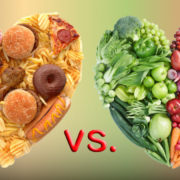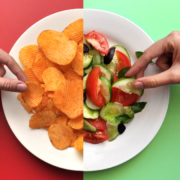Resolving Gas Problems
Whatever the cause, the question is how you can control any issues you have with intestinal gas. Once you realize how probiotics do what they do, and by that I mean via fermentation with the resultant gas, there are several strategies you can use to deal with it.
Strategies for Gas
Digestive enzymes can often help if the culprit is a specific food. For many people, beans cause gas while for others, excess protein can do it. With so many people doing keto these days, gas can be a substantial problem for them.
The solution may be to use a multi-purpose digestive enzyme before eating food you know causes you issues. Beans are obvious, as is protein. But for those who are lactose intolerant, milk and cheese can cause issues. Cellulases, proteases, and a lactase can help digest those macronutrients. For carbohydrates such as grains, amylases can be helpful.
The next question is whether taking digestive enzymes help with gas caused by supplements or pharmaceuticals. I can’t answer that because there’s no evidence one way or the other. Because your body naturally releases digestive enzymes, it’s doubtful they’ll interfere with the processing of the medication or supplement. It could be that your body isn’t making enough digestive enzymes to fully break down the substance, so adding or changing a digestive enzyme supplement is worth a try.
The second approach would be to identify which foods cause you problems, and it may not be as obvious as beans or dairy. It could actually be a spice that reacts with the microbes in your microbiome, and that’s not always easy to identify. Some foods such as sugar alcohols that are often used as sweeteners in processed food can cause gas. Once you’ve discovered which foods cause problems, sometimes the best policy is to limit them or avoid them entirely.
The third approach goes hand in glove with the second and that’s to change your diet. Research continues to show that people who eat more plant-based foods have different and perhaps better functioning microbiomes than those who do not. That’s a tough sell in this keto world we live in, but the carbs a person eats should lean toward vegetables with some fruit rather than starchy vegetables and grains.
Finally, if you take a probiotic supplement, stop it for a couple of weeks and see what happens. Remember in Tuesday’s Memo, the excess gas stopped when the person stopped taking the probiotic. It may be that a different probiotic blend might work better. There are over 6,500 different microbes that have been identified, and it may take trial and error as well as newly developed probiotic blends before you get it right.
The Bottom Line
There are a couple of other things that can contribute to gas such as drinking carbonated beverages and simply swallowing too much air. For most people, it’s still an issue of fermentation in the microbiome. The best approach is trial and error until you get the diet, prebiotic, and probiotic in balance.
Unlike other health issues, excess gas can be uncomfortable and can result in embarrassing situations, but as long as you’re not standing next to a flame, shouldn’t be fatal.
What are you prepared to do today?









